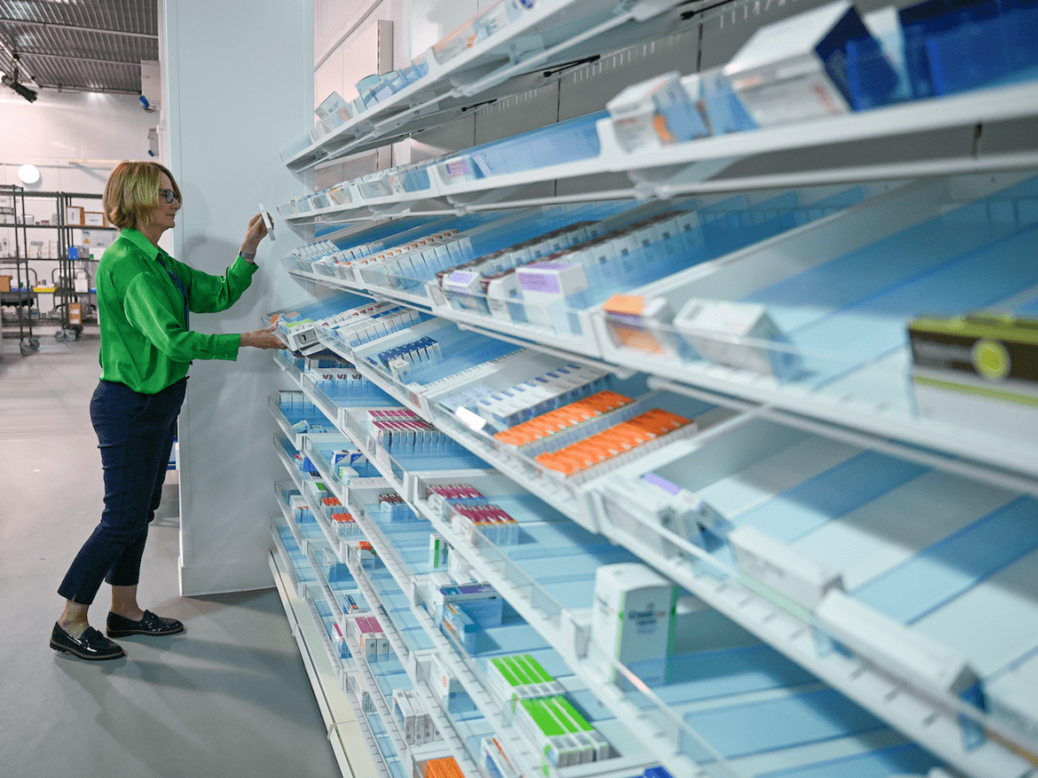
Last week junior doctors took part in a fifth round of strikes. Today NHS consultants have begun the first of two days on strike for the first time in over a decade. As the staffing crisis escalates, the government maintains that we can’t afford to pay health workers fairly, while claiming that any movement towards meeting staff pay demands would exacerbate inflation.
But restoring the value of pay is an essential step towards tackling the staffing crisis in the NHS. Junior doctors have seen a 31.7 per cent real terms pay cut since 2008. A recent survey by the British Medical Association found that over a third of junior doctors are thinking of leaving the NHS, with nearly half reporting difficulties paying for heating and rent. Many are getting into debt just to pay the bills.
And yet, while insisting that there’s no money for NHS staff, the government is in talks with pharmaceutical companies to discuss a possible increase in how much the health service pays for medicines.
Under the current voluntary scheme for branded medicines pricing and access, or Vpas, the total NHS drug bill is prevented from growing by more than 2 per cent each year, and pharmaceutical companies pay back excess revenues above the agreed limit. At the beginning of this year, two pharma giants quit the deal, citing the supposedly “punitive” system of Vpas-linked revenue reclaims by HM Treasury.
According to the Association of the British Pharmaceutical Industry, the UK is losing out on its share of global pharmaceutical research and development spending because of Vpas, with UK industry falling down the global rankings for its share of total levels of investment. The association also claims that the relatively low per capita costs that the UK is paying for new medicines threaten jobs in the life sciences sector.
Pharmaceutical companies now want to replace the deal, which has saved the NHS an estimated £7bn on drugs since 2019, with a scheme called Vpag – or voluntary scheme for pricing, access and growth – that would see the taxpayer paying an extra £2.5bn per year for medicines, according to the Department of Health and Social Care. For context, settling the junior doctors dispute, by restoring pay to the real-terms levels seen fifteen years ago, would cost between £1bn and £2bn, according to different net and gross calculations compiled by Full Fact. The government has suggested it will not give in completely to the pharmaceutical sector’s demands, describing the initial proposals as “completely unaffordable”. But a compromise would still be a disastrous capitulation to an industry that already extracts huge profits from the health and social care system.
Globally the industry is worth almost $1.5trn and, according to recent analysis by Global Justice Now, pharmaceutical firms have been charging mark-ups of up to 23,000 per cent over the past ten years. In the same decade, the industry has earned over £12bn in excess profits from just ten medicines, despite the Vpas revenue reclaim agreement that they now wish to leave.
Rather than considering doing more to recoup these profits, the government’s most recent proposals to fund its offer on doctors pay posited an increase in the immigration health surcharge – billed to migrants for accessing the health service – from £624 to £1,024. This kind of divisive policy fix pits the interests of health workers against migrants, perpetuating the myth that there’s “no money left”. This has been used to justify cuts across the UK’s public realm for over a decade, resulting in the collapse of service delivery and high levels of excess mortality.
Social care has been cut and increasingly privatised, and essential community health work such as drug and alcohol services have been slashed. The austerian logic prioritises short-term, false economies over all else. Research by the IPPR think tank estimated that fiscal retrenchment in local government financing, social care cuts, the depletion of public health capacity and other austerity measures had caused over a hundred thousand premature deaths. It has also led to pressures on remaining skeletal services that will be difficult and costly to fix.
Pharmaceutical companies argue that high profits are necessary to fund research into new medical treatments. But much of the key research comes from publicly funded institutes and universities. The development of Covid-19 vaccines, treatments and tests was only possible through state funding, use of NHS infrastructure and public research. The arrangement is increasingly normalised, with public funding meeting initial outlays, and public bodies and infrastructure doing much of the leg-work, while the private sector reaps the rewards through dividends.
But it doesn’t have to be this way. Instead, basic protections for public health could include ensuring that publicly funded research and development comes with conditions on pricing. Vpas should be maintained and strengthened, not abolished. Taxpayer funding of drug development should also be made more transparent, so the public knows when companies are effectively charging us twice (for developing the medicines then selling them back to us). More broadly, in the medium- to long-term, the UK would benefit from building public infrastructure that allows us to take medicine production into our own hands. The Indian, Chinese and Swedish governments already have this kind of infrastructure in place, with the latter presiding over one of the largest speciality pharmaceutical manufacturers in Europe.
As consultants strike today, and health workers’ strikes continue, it’s important that the myth of scarcity that underpins austerity is challenged. How money is distributed through the health system is a matter of political choice, not economic necessity.
To read the full report into medicines pricing from Global Justice Now, click here.



